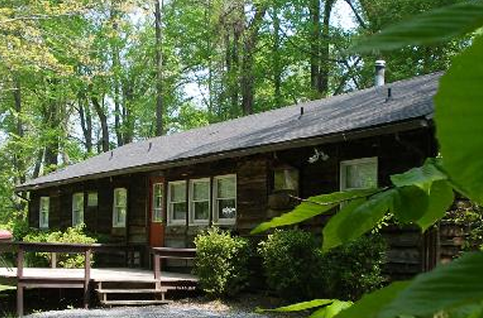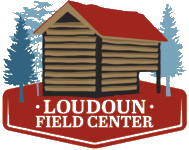An Educational Alternative – An Introduction

by Paul Gernhardt
The following is an introduction to the Loudoun Field Center alternative secondary education program at the Freedom Center in Lucketts, VA. Paul Gernhardt is the Executive Director of the Freedom Center and adds a lifetime of wisdom on how to gain success in personal, business, and spiritual endeavors.__________________
When 18-year-olds gain full agency over their lives they must be ready to exercise their new rights, privileges, and responsibilities with purpose and intent. They need to have foundational skills, attitudes, and approaches that help them navigate the real world with minimal turmoil and maximum achievement. It is critically important to remember that education is not just about getting a profitable job in a particular field. The most important goal is forming young adults as effective, purposeful, positive forces in all areas of their life — from work to family to community.
But that all really starts with an earlier transition point: that of the 13-year-old. A hundred years ago these young adults had completed their education and entered the real world. Young women began learning how to run a household from their mother – a very hard and complicated job before modern conveniences and services. Young men began working the farm, family business, or taking up an apprenticeship. Biologically they were primed to begin building an independent life to attract a mate and start a home. In these early teen years, young adults were given agency and responsibility. That had been the pattern for humans for thousands of years.
In the early-1900s we started keeping these young adults behind desks longer and delayed the start of their adult lives to the late teens. In the late-1900s we further deferred the start of their lives into their mid-twenties through universal access to advanced education. A college education went from being the domain of those going into a few specialty fields, to the default path for anyone who could navigate certain economic and social requirements — with little regard for whether college was useful for substantial improvements in their future lives.
The consequence of those decisions was that we have delayed the young adult’s ability to take control of their own lives. However, the underlying biological imperatives for these young adults have not changed. We have taken highly energized, motivated people eager to go and do and put them into mostly static classrooms until the passion has been dissipated. Our focus on knowledge as the focus of education, more knowledge is better, is being served at the expense of critical real-world capabilities.
This is not to say that academics are not important. Today there is a lot more knowledge that is available and needed than there was a hundred years ago. But at 13-years-old today’s young adults are ready, and indeed designed, to spend more time putting knowledge to action and purpose. The internal drive of the young adult is to engage and control their world… which we now deny them. Instead, we are more focused on knowledge and factoids while keeping them in carefully controlled, protective cocoons far away from the real world. We deny them the agency and the critical experiences gained from exercising it.
To correct this situation we need to bring academics and purposeful action together. We can do this in an educational program designed as a holistic approach to their future lives. This is not a new concept. You can find bits and pieces of this approach in various alternative education programs. The goal here, however, is to take the best of the various approaches and build a complete program.
It should be noted at this point that not all young adults learn in the same ways at the same pace. Some are very efficient in learning in today’s 16+ years of classroom time. For many others, alternative approaches provide a faster and more comprehensive experience. Each parent and young adult need to consider their individual needs and styles and find the path that might best achieve their desired result. The right approach is that which works best for the individual’s future.
Currently, the educational choices center around traditional public/private classes, individual study at home, or a child-led learning system. Going down the self-study program usually means losing access to local support and forgoing many of the physical resources available in modern secondary education. Another alternative is deeply needed.
For the purposes of a conversation on alternatives, let’s consider that the academic portion of learning represents the core knowledge from which we build understanding and skills. Our world demands we show that certain core knowledge has been obtained. Ignoring that comes at the peril of limiting future opportunities – which is never an optimal result.
Thankfully, today it is an easy task to engage in independent academic study. Never has academic instruction been more available, nor as easily customized to the individual. A vast array of academic knowledge is available from a wide variety of sources in a variety of formats. Acquiring academic knowledge has essentially become a customizable self-serve commodity. Numerous available curriculums can be custom-tailored to the specific needs of the individual.
What is most often missing in the independent academic process is in-person mentorship — the help, guidance, oversight, and encouragement needed to make continuous, purposeful, and documented progress in knowledge, understanding, and skills. A mentoring environment where they can move forward at their own pace, assuring that key knowledge is not missed and that support should always be available to them in an environment that allows them to focus and explore as they learn. Mentors are a critical part of the next education program.
Tuning knowledge into understanding and skills is an interactive process that engages our young adults in real-world projects. This goes to the heart of what a young adult is designed to do – engagement with the world. Trying, failing, re-engaging, building, and shaping their skills and world is not something that can be accomplished behind a desk. For many in traditional education, this is often done in extracurricular activities – as if it was an optional and unimportant part of the process. In fact, this should be a core part of what happens in the educational environment.
For our reconstructed education program, the goal is to integrate this into everyday activities. Get the young adults out of the classroom and work on individual and team-based hands-on programs. This is about taking the academic knowledge and exploring how it applies in life and how to use it to shape their lives. Projects which introduce them to new areas and skills for their lives, family, community, and career.
What does this look like in practice? A variety of programs each quarter. From great conversations and project management to individuals and teams choosing to start and run a business for a year, building a house, feeding the poor, growing a garden, building a hydro-power generator, learning first-ad, or even building an airplane. The list is endless. Some of it is will be required, some of it is guided by what the young adults wish to do and where they want to go. Each project puts knowledge to practice, developing skills, and learning to work with others. Each is put in the context of family, faith, work, and community.
The best projects take acquired knowledge and provide a path to earn skills and insights that they can apply to their lives while exposing them to opportunities for spiritual, family, community, and career growth. A first aid course will help them handle emergencies in their lives, show them how to be prepared, ready to help others, consider safety in general, and expose them to possible careers in medicine. The education environment should provide a path for them to further explore those interests. Every program should provide an understanding of how it is, or could be, relevant in their future lives.
This leads us into the final part of this blog: the holistic approach to a young adult’s education. Being effective in life is the ability to accomplish what you set out to achieve. The critical part of the statement is “set out to achieve”. Not just in a career, as much of today’s education seems focused, but in all areas. They will function in family, work, and community and should be prepared for that. A community that not only includes friends and neighbors, but faith communities, country, and society in general.
Young adults need to intentionally explore how they decide what they will seek to achieve. What are their values and morals? Where do they come from and what do they mean? This is a spiritual and faith journey that must be purposely included in a holistic program.
Finally, education is not something that is ever finished. Every young adult should learn how to educate themselves going forward. How to seek new knowledge, understanding, and skills in all areas of, and throughout their lives. Their final years in the education program should be largely self-led and adult guided. This should set the pattern they carry forward.
We have talked about “the rest of their lives”, but few young adults (or old adults for that matter) know where they are going for the rest of their lives. So it makes even less sense to pressure kids to decide now what they will do for a living “the rest of their lives”. Few people I know with college degrees work in the field of their major. What anyone, particularly a young adult, values and chooses to do with their life will change when they meet someone they want to marry. It will change again when they hold their first newborn. It will change further as new opportunities and new people and new understandings come into their lives. Let their education program prepare them for navigating those opportunities instead of following a single precept of where they are going based on a decision made before they have experienced the world.
We should prepare our youth for the next few steps they will take, then equip them to figure out what they need for the few steps after those… and step-by-step where they may go in their lives.
The following blogs will explore one possible education program’s approach to academics, support, projects, and worldview development. I hope you join me in that journey.
